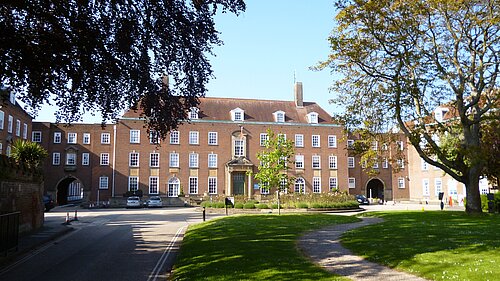Councillors Urge Ministers to Back Two-unitary Model for West Sussex

Opposition party County Councillors at West Sussex have united to oppose the preferred option for local government reform, put forward by the Conservative Cabinet at West Sussex County Council (WSCC) following a special council meeting on 23 September.
The Conservatives preferred option would see all district and borough councils replaced with a single supercouncil for West Sussex.
This in spite of;
- Opposition party councillors did not support this option.
- No existing district or borough council supported this option.
- The public engagement showed no support for this option from any area of the county.
Yet the ruling Conservative Cabinet at WSCC went ahead in putting it forward as their preferred option.
Cllr Jay Mercer –Leader of the Liberal Democrats at West Sussex said;
“A single, very large unitary covering the whole county risks centralising power and diluting local representation. That’s why the government has already decided to create two new unitaries in our county neighbour, Surrey. West Sussex residents also need to feel their council and councillors are accessible and understand local needs.
“Conservatives opted to cancel elections this year while all the changes are in process, which was very contentious, as they were widely expected to lose control, and their democratic mandate at County is questionable. They were last elected in 2021, compared to districts and boroughs in 2023. So, ignoring the views of ALL seven councils and the residents’ engagement responses, is deeply questionable. That’s why we are working with our colleagues to ensure the voices of our residents are heard and acted upon.”
The reorganisation will mean all residents across West Sussex will receive current district/borough and county services from a unitary council, allowing for economies some of scale and clarity around who’s responsible for what. The issue is whether there will be only one for all West Sussex, or two, Currently seven local councils oversee services like housing, parks and recreation while the County Council oversees everything else including education, children’s services, highways, environment, waste, social care etc... There are seven chief executives, seven management teams and seven sets of elected councillors to represent West Sussex’ residents.
Now opposition Councillors at the County Council have come together to express their concerns to the Minister who will make the decision. They are arguing for two unitary authorities to replace the current County, District and Borough Councils, forming two new unitary councils as follows:
- A coastal and Downs authority combining Adur, Arun, Chichester and Worthing — reflecting shared
coastal economies and housing pressures along the A27 corridor. - A central Sussex authority covering Crawley, Horsham and Mid Sussex — aligned around the Gatwick Diamond economic area and major transport links such as the M23/A23 and A24.
This option would ensure West Sussex residents were more appropriately represented on the Strategic Mayoral Authority which will cover East and West Sussex as well as Brighton and Hove. It would give residents four seats rather than two to ensure we have a strong voice at the strategic level.
The councillors believe the two unitary model will also keep councillors closer to communities, bolstering democratic accountability and engagement.
Cllr Chris Oxlade – Leader of the Labour Group at West Sussex said;
“I understand the importance of maximising savings, but whilst a single unitary might see greater savings and a quicker payback in the short term, that must be weighed against the risk to local representation. There are very different needs and priorities in our coastal and inland communities. People in the north already consider Chichester and West Sussex County Council to be remote and we need to listen to that if we are to carry our residents with us.
“This important decision will affect how West Sussex residents are governed for generations. That’s why we have joined with our opposition councillors to oppose this Conservative choice. We have all been elected to listen to our residents and represent their views and concerns - that’s what why we are working with colleagues on this – to make sure those voices are heard.”
The joint business case and preference letters were lodged with government in late September 2025. Ministers will now consider the submissions and undertake their own assessment and consultation before a final decision — currently expected in 2026.
The outcome will determine whether West Sussex moves to one new unitary or two separate councils, and when elections for any new authorities will be held.
Cllr Donna Johnson – Leader of the Green and Independent Alliance said;
“I think we can all understand the need to protect our residents from this kind of authoritarian approach. When residents have been so clear in their engagement responses and ALL district and borough councils have opposed a single unitary approach Conservatives at West Sussex ought to listen. The fact that they have not, does not bode well should the government chose their preferred option.”
Campaigners and local leaders are calling for Ministers to go with the two-unitary model saying ministers should weigh the broad local consensus, the distinct economic geographies of the county, and the democratic questions raised by the election postponement.
With a high-stakes decision pending in Whitehall, West Sussex’s future governance structure is set to be a test case for the government’s national push to simplify and devolve local government.